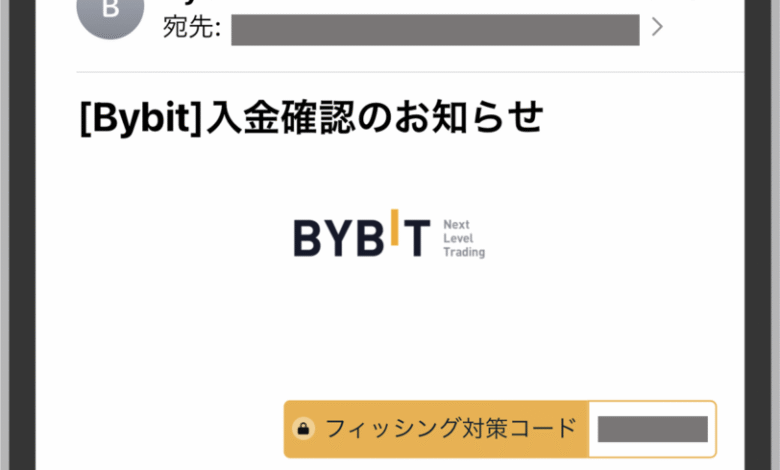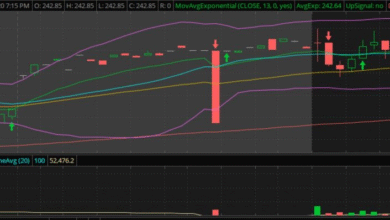Bybit India GST: 18% Tax Hits Crypto Traders Hard

Bybit India GST is making waves in the cryptocurrency trading landscape as the exchange prepares to enforce an 18% Goods and Services Tax (GST) on all its services. This significant shift is a response to the tightening Indian crypto regulations, which require virtual digital asset service providers to comply with tax obligations. Starting July 7, this new tax will impact various aspects of trading, including spot, margin and derivatives trading, along with fiat transactions and crypto withdrawals. The introduction of Bybit India GST has sparked concerns among traders regarding the overall crypto trading tax in India, especially with existing levies like the 30% capital gains tax and the 1% Tax Deducted at Source (TDS). As Bybit implements these changes, users must brace for increased costs and potential service interruptions, further complicating the already challenging landscape for crypto enthusiasts in India.
The recent updates surrounding Bybit India GST highlight a crucial turning point for local cryptocurrency users as they encounter additional financial burdens imposed by governmental regulations. With the growing focus on compliance in Indian crypto markets, this new tax framework demands that exchanges like Bybit adapt their services and trading fees accordingly. As adjustments are made, many traders are left contemplating the implications of these regulations on their trading strategies and profitability. Moreover, the anticipated shutdown of Bybit’s services creates an atmosphere of uncertainty in the rapidly evolving digital asset space, leaving many to question the future of crypto trading in India amidst the government’s rigorous stance on taxation.
Impact of 18% GST on Bybit Crypto Services in India
The recent imposition of an 18% Goods and Services Tax (GST) on crypto services in India by Bybit represents a significant change in the landscape for Indian crypto traders. This new tax will apply directly to transaction costs for users, affecting both trading and service fees. For instance, a trader selling Bitcoin will notice a marked decrease in proceeds due to direct deductions from their sale. With Bybit implementing these charges starting July 7, users must quickly adapt to the new tax regime, which could deter potential investments in the crypto market.
In addition to the immediate costs, the broader implications of these changes raise concerns among crypto proponents. The heavy tax burden, combining the 18% GST with the existing 30% tax on profits and the 1% TDS, places India among the highest taxed countries for cryptocurrency activities. As Bybit adjusts its operations in response to these regulations, including service shutdowns for certain products, many users may find themselves increasingly limited in their trading options. This may discourage new traders from entering the market and drive existing users to explore platforms outside of India.
Understanding Indian Crypto Regulations and Their Effect
Indian crypto users are facing an evolving regulatory environment that increasingly scrutinizes cryptocurrency trading activities. The compliance measures adopted by exchanges like Bybit highlight the importance of understanding the regulatory framework governing virtual digital assets. As the government rolls out stringent regulations, it becomes vital for users to stay informed about the associated tax implications, particularly the GST applied to trading services. With many exchanges aligning their services with local laws, this adaptation signifies a broader attempt to ensure regulatory conformity within the Indian crypto ecosystem.
Moreover, the regulatory landscape is constantly changing, which poses unique challenges for users and exchanges alike. It raises questions about how these taxes affect the overall attractiveness of crypto trading in India. Advocacy groups warn that the increased taxation could stifle innovation within the industry, while they continue to push for clearer regulations that balance safety with growth potential. Navigating these regulations is essential for users to understand their rights and responsibilities while engaging in crypto transactions.
GST on Crypto: A Double-Edged Sword
The implementation of an 18% GST on crypto transactions serves as a double-edged sword for Indian traders. On one hand, it legitimizes cryptocurrencies as taxable assets, aligning them with traditional financial products that are already subject to taxes. This could potentially attract institutional investors who prefer investments in regulated environments. The inclusion of such taxes indicates a move towards formal recognition of crypto trading, which might encourage more systematic investments.
On the other hand, this considerable taxation can severely impact individual traders and small investors, who may already be deterred by the existing high profit tax rates. As the net profits shrink due to increased taxation, traders may reconsider the viability of their investment strategies. Lower disposable income for trading can hinder the growth of the Indian crypto market, prompting many to seek out more favorable conditions abroad or to discontinue trading altogether.
Navigating the New Tax Landscape in Crypto Trading
As the GST comes into effect on crypto trading in India, users must develop strategies to navigate this new tax landscape. Understanding how to factor in these costs when planning trades and investments is essential for optimizing returns. This could involve focusing on lower-cost trades or exploring alternative cryptocurrency exchanges that might have lower fee structures. Knowledge about tax obligations and how they impact net profits will underpin users’ strategies moving forward.
Additionally, seeking professional advice on crypto trading tax in India can be invaluable. As the regulations evolve, so do the strategies for mitigating tax burdens. Traders and investors can benefit from meticulous record-keeping, which will help clarify the impact of GST on their trading activities. Staying updated with any changes in legislation and understanding tax liabilities are key to maintaining a successful trading experience in the increasingly regulated Indian crypto landscape.
Bybit Shutdown Services and Its Implications
As part of its compliance with new Indian regulations, Bybit has announced a series of service shutdowns that will affect user experience significantly. Notably, products such as legacy crypto loans and various trading bots will cease to operate, placing additional strain on traders who depend on these tools for efficient trading strategies. The shutdown of such services could push users to seek alternative exchanges, which could potentially disrupt the overall market dynamics.
These changes signal a pivotal moment in Bybit’s operational strategy within India, highlighting the impact of regulation on service offerings. For many users, this could mean greater difficulty in accessing specific functionalities that have been integral to their trading experiences. Understanding the implications of these shutdowns alongside the tax hikes will be essential for traders who must adapt quickly to a rapidly evolving regulatory environment.
The Future of Crypto in India: Adapting to Change
The imposition of GST and the subsequent service shutdowns signal a transformative period for the crypto landscape in India. As traders face an increasing regulatory burden, the future of cryptocurrency in India relies heavily on how businesses and traders adapt to these changes. Continuing to engage with policymakers can help ensure that the emerging regulations balance the need for taxation with the importance of fostering growth in the crypto sector.
Embracing innovative technologies and approaches will be crucial for the industry’s resilience. Stakeholders must collaborate to create a regulatory framework that protects investors while promoting entrepreneurship in the crypto space. As the community works together, there is hope that the Indian crypto economy can overcome these challenges and establish itself as a leader in the global digital asset market.
Suggestions for Indian Crypto Traders Post-GST
In light of the newly imposed GST and compliance measures by exchanges like Bybit, Indian crypto traders should consider reassessing their trading practices. This involves thorough cost analysis, ensuring they understand how GST impacts their transactions specifically. Traders may need to recalibrate their approaches to trading fees, leverage rates, and the overall financial landscape to maintain profitability under the new tax regime.
Additionally, engaging in continuous education about crypto trading tax in India can aid traders immensely. By understanding the nuances of taxation and compliance, users can better prepare themselves for future developments. Utilizing available resources, such as workshops and online courses, can equip Indian traders with the necessary tools to navigate the complex and evolving landscape of cryptocurrency regulation.
The Role of Compliance in Cryptocurrency Trading
Compliance plays a crucial role in the world of cryptocurrency, particularly as regulations evolve in countries like India. For crypto exchanges like Bybit, adhering to these regulations not only safeguards their operations but also builds trust with their user base. By implementing necessary tax structures, exchanges can reinforce their commitment to responsible trading practices, which bodes well for the overall integrity of the crypto ecosystem.
Traders must align their activities with these compliance requirements to thrive in the new regulatory environment. Understanding how compliance impacts trading strategies can also help users mitigate risks associated with potential regulatory changes. A proactive approach to compliance will allow traders to adapt quickly and remain competitive in a market that is continuously evolving.
Evaluating the Impact of Increased Costs on Indian Investors
The increased costs resulting from the GST on cryptocurrency trading will require Indian investors to rethink their strategies moving forward. With the additional 18% tax layered on top of existing taxes, the profitability of trades could come under pressure. Investors need to be sharp in evaluating their positions and the overall cost of trading to ensure they can still achieve profit despite higher fees.
Furthermore, increased costs may push some retail investors to reassess their commitment to local exchanges or even consider alternatives in jurisdictions with more favorable tax conditions. As the market evolves, it’s essential for traders to adapt their strategies to mitigate the financial impact of these regulatory changes, ensuring a balanced and sustainable approach to their investment journeys.
Frequently Asked Questions
What is Bybit’s GST policy for Indian traders?
Bybit is implementing an 18% Goods and Services Tax (GST) on various services and trading fees for Indian crypto traders, starting from July 7, as part of compliance with Indian crypto regulations.
How will the GST on Bybit services affect Indian crypto users?
The GST will increase transaction costs for Indian users, resulting in lower net profits. For example, selling 1 BTC at 100,000 USDT will yield only 99,882 USDT due to the GST deduction.
What crypto services are affected by Bybit’s GST charge in India?
The GST applies to all major services including spot and margin trading, derivatives, fiat transactions, and even crypto withdrawals, impacting overall costs for Indian traders.
Are there any changes to Bybit services in India due to GST?
Yes, Bybit will start discontinuing certain products like legacy crypto loans and the Bybit card on July 9, as part of their strategy to comply with new Indian taxation regulations.
How does the GST on crypto in India relate to current tax regulations?
The 18% GST on Bybit follows the existing 30% tax on crypto profits and a 1% Tax Deducted at Source (TDS) for Indian crypto transactions, adding significant financial burdens to traders.
What should Indian users expect from Bybit following the implementation of GST?
Users can expect increased fees on trading activities, possible service shutdowns, and a stricter compliance landscape as Bybit adjusts to the evolving Indian crypto regulations.
Is Bybit the only platform applying GST on crypto services in India?
While Bybit has announced its GST implementation, other platforms may also follow suit as Indian crypto regulations evolve and compliance becomes mandatory.
How can Indian traders prepare for the GST impact on their trading activities?
Traders should stay informed about the changes, calculate potential impacts on their transactions, and consider adjusting their trading strategies to mitigate the effects of increased costs.
Will Bybit offer any exemptions or alternatives to GST for Indian crypto users?
Currently, Bybit has not announced any exemptions from GST for Indian users; all applicable fees will be subject to the 18% tax as required by Indian law.
What are the broader implications of Bybit’s GST compliance for the Indian crypto market?
Bybit’s compliance with GST may lead to increased costs for users and raise concerns about the long-term growth and adoption of cryptocurrencies in India’s regulatory environment.
| Key Aspect | Details |
|---|---|
| GST Implementation | Bybit will impose an 18% Goods and Services Tax on all services starting July 7. |
| Services Affected | GST applies to spot trading, margin trading, derivatives, fiat transactions, and crypto withdrawals. |
| Impact on Users | A user selling 1 BTC for 100,000 USDT will receive 99,882 USDT after deductions. |
| Additional Taxes | In addition to the 18% GST, users face a 30% tax on profits and a 1% TDS. |
| Service Shutdowns | Several services like legacy crypto loans and trading bots will be discontinued by July 9. |
Summary
Bybit India GST is significantly reshaping the landscape for Indian crypto traders due to the recent implementation of an 18% Goods and Services Tax on various services. As Bybit complies with the new tax regulations, the combination of high taxes and service shutdowns raises concerns among users about the future growth of the crypto economy in India. With increased trading costs and the removal of essential services, crypto enthusiasts fear that these changes could deter long-term adoption and participation in the digital asset space.



